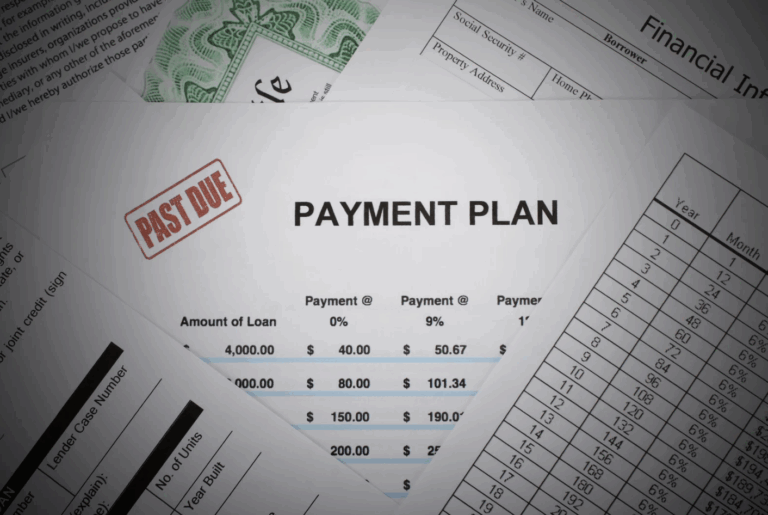As a business owner, you know that relationships are everything. As a result, a merchant cash advance (MCA) provider contacting your customers or family in an effort to collect an unpaid debt can be stressful. Unfortunately, some of the laws protecting consumers from unfair debt collection practices don’t apply to businesses. However, if your MCA lender is harassing you or contacting your customers and family members, you still have some options.
Can Merchant Cash Advance Lenders Contact Your Customers or Family?
The short answer is that, yes, it’s technically legal for lenders to contact your customers or family about your merchant cash advance debt. The most common situation where an MCA provider might contact your customers or family is if you have an outstanding debt and they’re having a hard time getting a hold of you to discuss it or they want to apply pressure to you to pay the delinquent debt.
Another situation where an MCA provider may initiate contact — especially with your customers — is if you’ve defaulted on yourMCA and it hopes to collect payment directly from your customers rather than from you. After all, the future sales and revenue from your customers is how your MCA provider would collect their payments anyways.
MCA payments are generally collected directly from the merchant, and it would be relatively rare for an MCA to contact your customers directly. However, the potential damage to your business relationships certainly makes it worth considering.
Legal Considerations for MCA Customer Contact
In the case of consumer lending, there are strict rules in place for the time, manner, and place in which creditors can contact customers. The Fair Debt Collection Practices Act states that lenders can’t discuss your debt situation with anyone but you, your attorney, or your spouse. While they can contact people in your life, they can only do so once, and only for the purpose of getting a hold of you.
Unfortunately, the same protections don’t apply to MCAs and other business lending. MCAs, in particular, aren’t as heavily regulated as traditional loans. That means your MCA company can legally contact your family, business colleagues, customers, and others.
Of course, MCAs are still held to some standards. First, your MCA agreement may outline exactly what privacy protections you’re entitled to. Check to see if your agreement includes any provisions about contacting third parties.
Additionally, your MCAr may be held to the Commercial Collection Agencies of America (CCAA) Code of Ethics. Among other things, this code prohibits your lender from threatening to contact your vendors and financial institutions. However, the CCAA Code of Ethics is non-binding and only applies to CCAA members. These guidelines are recommended, not required.
Managing Customer Relationships in MCA Situations
It’s likely that one of your biggest concerns if merchant cash advance funders starts contacting people is that it could damage your business relationships. After all, if your customers or clients learn from your lender that you’re in financial trouble, they may have second thoughts about working with you.
The first thing you can do is be proactive about protecting your customer information. If your merchant cash advance company doesn’t know who your customers are, they can’t contact them. Your customers will certainly appreciate you protecting this information.
The other thing you can do is be honest with your customers, especially if your MCA company has threatened to contact them. Especially if you’re a small business owner with a good relationship with your customers, they may appreciate hearing about the situation from you rather than the lender.
Finally, if your lender has already contacted your customers and you didn’t learn about it until after the fact, it may be time to employ some damage control. Contact your customers to explain the situation (or at least as much of it as you’re comfortable sharing) and offer any assurances you can.
COnsider employing an expert business debt attorney who works with businesses that take MCA’s to protect your business interest.
Steps to Take If MCA Contact Occurs
If your MCA funder has contacted your customers or family, you’ll probably first want to manage those relationships personally by reaching out and explaining the situation. It can also be helpful to learn what the MCA provider shared with or said to those they contacted.
If you feel the contact was inappropriate or it doesn’t stop, it may be time to hire an experienced attorney. An MCA attorney has dealt with situations like yours, and can help you manage your outstanding MCA debt and your communication with your MCA. The earlier in the process you start working with an experienced business debt relief attorney, the less the MCA will have the opportunity to harass you and your customers or family members.
There are steps you can take, with or without the help of an attorney, to stop these communications. Your options include MCA debt settlement and bankruptcy.
Conclusion: Protecting Your Business and Customer Relationships
Unfortunately, there’s no law that prevents merchant cash advance providers and other business lenders from contacting your customers and family. That being said, you’ve likely worked hard to build those business relationships and want to keep them intact. If your MCA is contacting your customers (or threatening to contact them), it may be worth consulting a business debt relief attorney.
Tayne Law Group has been helping businesses, merchants and borrowers like you for more than two decades resolve debt and keep the business cash flow going. If you’re struggling with your MCA, we may be able to help. Call us today at (866) 890-7337, or fill out our short contact form to set up a free phone consultation. There’s no obligation, and we never share or sell your information.





